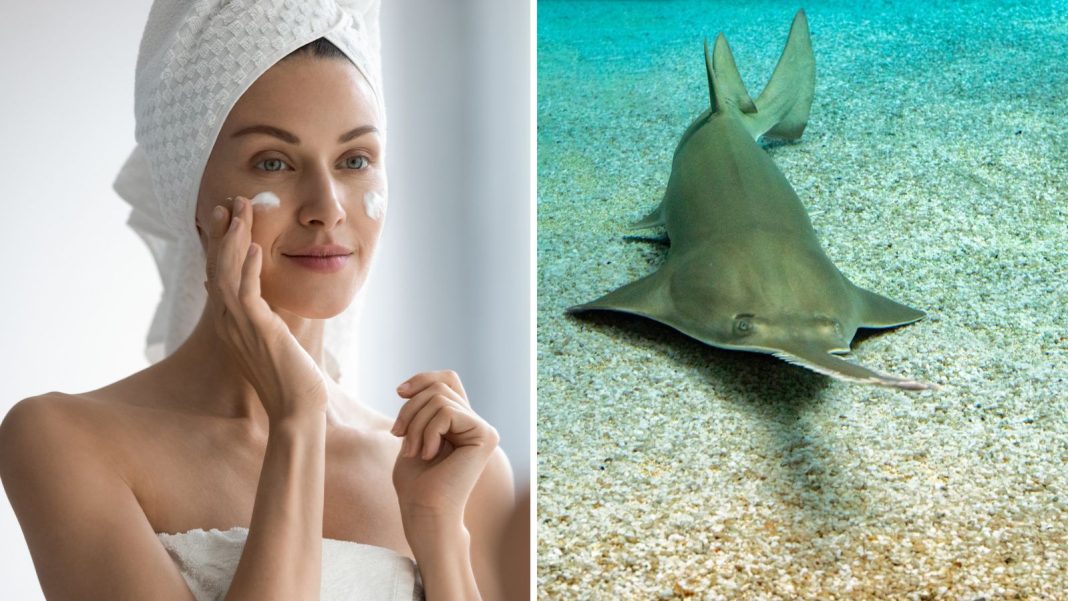If you’re into skincare, you will have heard of squalene (or squalane).
It’s in moisturisers, make-up and cleansers but is also used in vaccines and medicines.
Now, scientists have linked squalene to around 390 species of sharks and rays being threatened with extinction, according to new research.
The authors are calling for better regulation of the industry.
“It’s very easy to forget what’s going on in the deep, and we hear a lot of stuff about mining in the deep ocean, but the reality is the biggest threat is overfishing,” Professor Nick Dulvy told the Vancouver Sun.
Squalene is traditionally collected from the livers of deepwater sharks. The livers help them stay afloat.
More than 200m below the surface, their ecosystems are one of the last refuges from humans, say researchers. But the sharks and rays that live there are being devastated by fishing.
Just under 390 of the nearly 2,800 species of deepwater sharks and rays are now threatened with extinction. They’re more at risk from fishing than other species because they’re very slow to reproduce.
Although many cosmetics companies now use vegan squalene, the shark-based oil is still common around the world.
It hit the headlines in 2020, as it was an ingredient in some COVID-19 vaccines, leading GlaxoSmithKline to say it was researching plant-based alternatives for its vaccines.

A critically-endangered carpenter shark at the Sydney Aquarium. Pic: AP
“Liver oil is kind of going under the radar,” Prof Dulvy said. “If you ask anybody about it, they’ll never have heard about it, but the reality is we’ve probably all used it or ingested it.”
Read more from Sky News:
More giant redwoods in UK than in native US
Frog species threatened by France and Europe’s taste for frogs’ legs
Around 750 tons of shark liver oil were traded in 2018, which are the latest statistics reported to the UN’s Food and Agriculture Organisation.
Up to 100 million sharks are caught each year, sold for their fins and meat as well as liver oil.
In recent years, because of pressure from consumers, lots of companies have started using plant-based squalene, but shark populations are still declining.
“We have the evidence to act more proactively for the deep ocean and learn from the mistakes that have driven more than half of coastal and pelagic species to be threatened,” concludes the new research, which is published in the journal Science.







